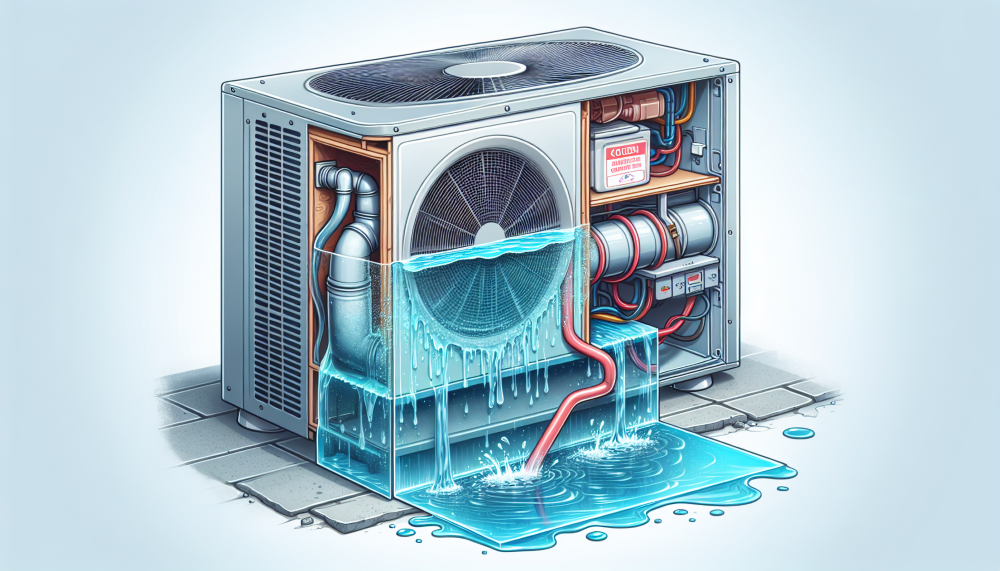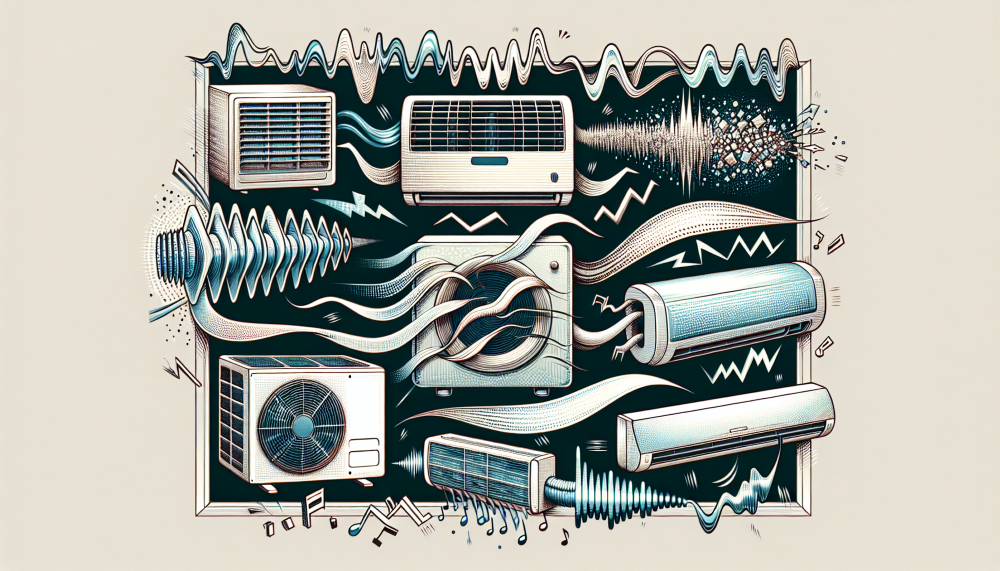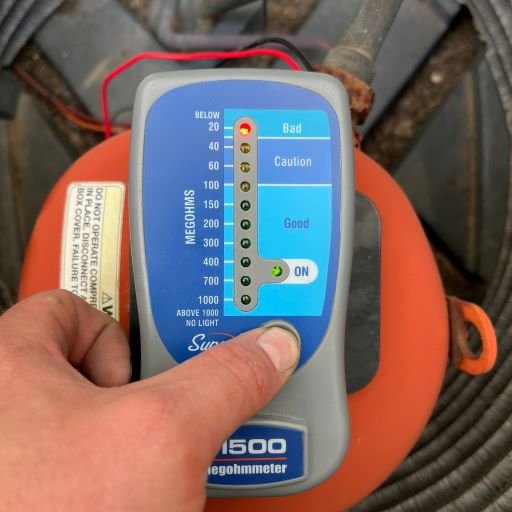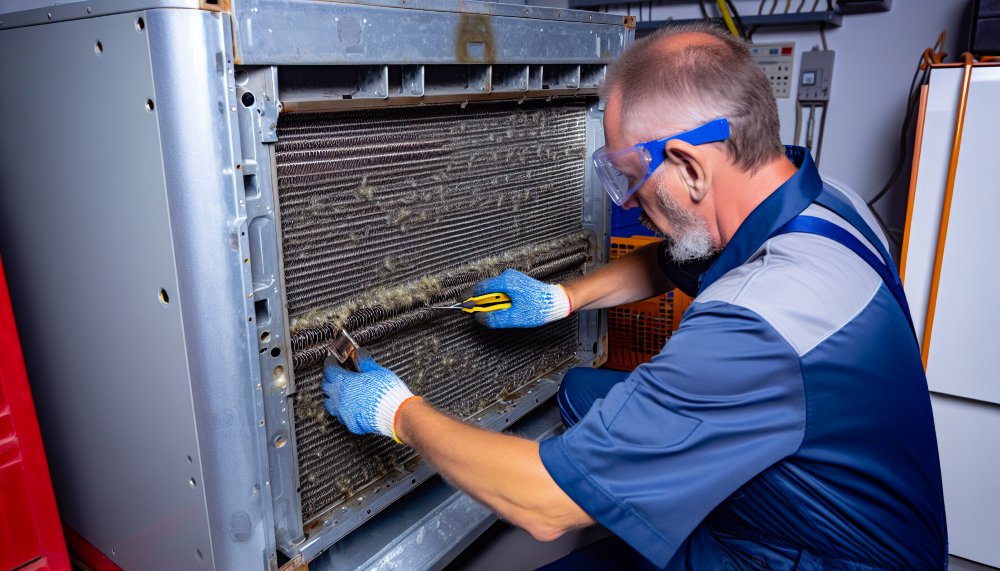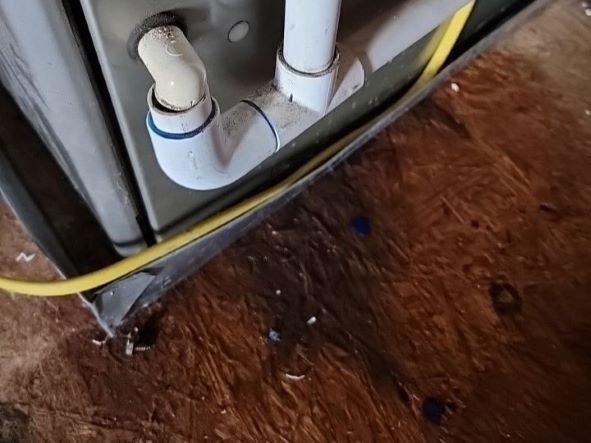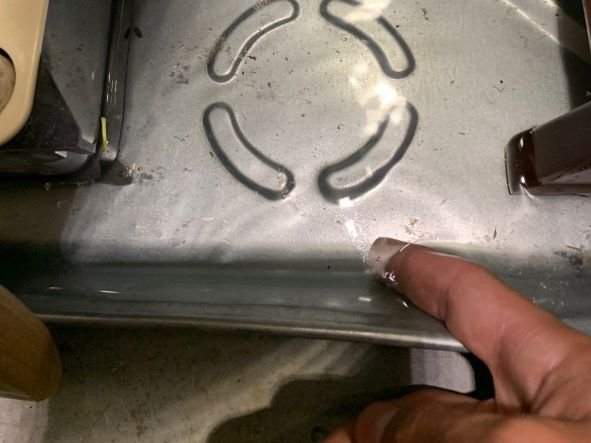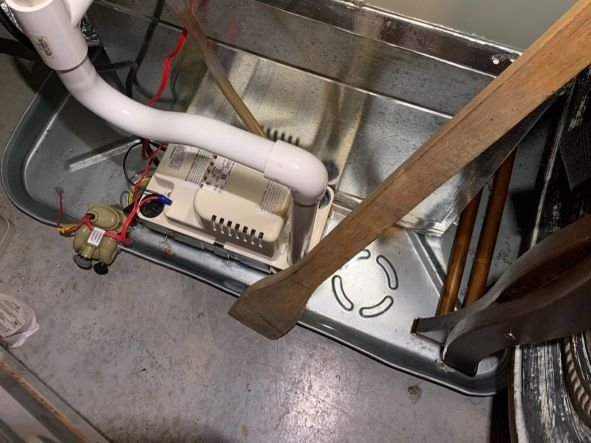Why Is My AC Leaking?
If you’re wondering, “Why is my AC leaking?” you’re not alone. This common issue can be due to clogged drains, damaged pans, or dirty filters, which we’ll discuss here. Understanding these causes is essential to troubleshoot and resolve this nuisance quickly.
Key Takeaways
Common causes of AC leaks include clogged condensate drain lines, damaged drain pans, and dirty air filters, which can lead to backed-up water, rust, and reduced airflow.
Warning signs of AC water leaks are wet spots around the unit, mold growth near the unit, and reduced cooling efficiency, which can all suggest underlying issues.
Quick fixes for AC leaks involve cleaning the condensate drain line, replacing the drain pan, and changing the air filter, while scheduling regular maintenance and monitoring refrigerant levels can prevent leaks.
Understanding the Causes of AC Leaks
A few common issues often cause air conditioner leaks. These include a clogged condensate drain line, a damaged or rusted drain pan, and a dirty air filter.
Let’s look at each of these issues in detail.
Clogged Condensate Drain Line
Your air conditioning unit has a condensate drain line that allows water to flow out of the system. But what happens when this line gets clogged? A clog can block the water flow, causing it to back up and fill the drain pan. Once the drain pan is full, the water spills over, leading to leakage. Clogs are often caused by mud and debris in the tubing. This not only leads to water leaks but can also result in increased humidity levels inside your home.
Some AC systems have an emergency shutoff feature that activates when a clog in the drain line is detected. This feature is designed to prevent potential water damage. But it’s always better to prevent clogs from occurring in the first place. Regular condensate drain line cleaning can help maintain proper drainage and prevent blockages.
Damaged or Rusted Drain Pan
The drain pan in your air conditioning system plays a crucial role in preventing water leaks. It’s designed to catch the condensation from the evaporator coils. But what happens when the drain pan is damaged or rusted? Water that should be collected in the pan leaks through, leading to water leakage where it isn’t supposed to be.
Unfortunately, old or damaged drain pans are common causes of water leaks in air conditioners, particularly in older units. If a damaged drain pan is left unaddressed, it can lead to water leaking inside your home, potentially causing water damage over time. It’s essential to ensure that the drain pan is the correct fit and to replace it if it’s rusted or damaged.
Dirty Air Filter
The air filter in your air conditioning unit is another common culprit of water leaks. A dirty air filter can restrict airflow over the evaporator coils, leading to decreased efficiency and potentially causing the coils to freeze. When these frozen coils thaw, they can lead to water leaks.
Regularly changing your air filter can prevent this issue. By preventing dust and dirt buildup, you can ensure optimal airflow through the system and reduce the likelihood of ice formation on the evaporator coils. Routine cleaning and maintenance of your AC system’s components, especially the air filter, are critical in preventing clogs and ensuring efficient operation to avoid water leaks.
Warning Signs of AC Water Leaks
Now that you understand the common causes of AC leaks, it’s equally important to know the warning signs. This way, you can identify and address potential problems before they escalate.
Some of the warning signs of AC leaking water include wet spots around the unit, mold growth, and reduced cooling efficiency.
Wet Spots Around the Unit
One of the most obvious signs of an AC leak is wet spots around the air conditioning unit. These can appear on walls, ceilings, or floors near the unit. If you notice any wet spots, it’s essential to address them promptly to prevent more extensive water damage and ensure the unit’s proper function.
Factors such as a clogged drain line, rusty drain pan, or malfunctioning condensate pump can lead to water leakage that results in wet spots. Regularly checking your AC unit’s drain lines for clogs or disconnections can prevent water backup and overflow, keeping your surroundings dry and your AC unit working efficiently.
Mold Growth
Another sign of a leaking AC unit is mold growth in its vicinity. High humidity levels due to water from a clogged condensate drain entering the air can make your home feel uncomfortable and promote mold and mildew growth. A residential air conditioner leaking water can generate enough condensate to cause mold and mildew growth, particularly in humid conditions where warm air exacerbates the issue.
Mold growth is not just unsightly; it can also pose health risks, especially for those with allergies or asthma. If you notice any mold growth near your AC unit, it’s crucial to address it immediately to prevent health-related issues.
Reduced Cooling Efficiency
Another warning sign of AC leaks is reduced cooling efficiency. A frozen evaporator coil, which can be a result of water leaks, leads to reduced cooling efficiency in an AC system. This means that the AC system has to operate for longer periods, pushing up energy costs.
To avoid AC inefficiency, it is crucial to ensure that refrigerant levels are correct. If refrigerant levels are not accurately maintained, the AC system may become inefficient or even fail. Regular maintenance checks can help you monitor your AC’s refrigerant levels and ensure optimal performance.
Quick Fixes for Common AC Leaks
Once you’re aware of the common causes and warning signs of AC leaks, you might be wondering how to fix these issues. Here are some quick fixes for common AC leaks, including cleaning the condensate drain line, replacing the drain pan, and changing the air filter.
Cleaning the Condensate Drain Line
Cleaning the condensate drain line is an easy fix for avoiding clogs and ensuring proper drainage. You can start by following these steps:
Open up the AC unit to see the drain line.
Pop open the PVC cap covering the drain line.
Use a long wire brush or a pipe cleaner to scrub the inside of the drain line and break up the clog.
After removing visible blockages, follow these steps to clean your drain line:
Use a stiff brush to clean inside the drain line.
Flush the drain line with water to clear out any remaining debris.
For a comprehensive clean, use a specialized drain line cleaning solution or a mix of vinegar and water to address bacterial growth.
Follow this up with a flush of water to ensure the line is clear.
Regularly checking your AC unit’s drain lines for clogs or disconnections can prevent water backup and overflow.
Replacing the Drain Pan
If your drain pan is damaged or rusted, replacing it can prevent future leaks. Start by ensuring the AC unit is powered off before beginning the replacement process to maintain safety. Remove the damaged drain pan by detaching any screws or fasteners securing it beneath the evaporator coil.
Next, to install a new drain pan, follow these steps:
Choose a drain pan that fits correctly and securely connects to the drain line.
Replace any necessary fasteners and ensure a tight seal to avoid future leaks.
Regularly inspect the drain pan for any signs of cracks, damage, or rust to prevent water leaks and maintain the optimal functioning of your AC unit.
Changing the Air Filter
Regularly changing the air filter in your air conditioning unit can prevent restricted airflow and evaporator coil freezing, reducing the likelihood of water leaks. The air filter should be replaced every 1-3 months to prevent ductwork from clogging and the air conditioning unit from freezing up.
Changing air filters prevents dust and dirt buildup, restricted airflow, and evaporator coil freezing, which are common causes of AC system leaks. Routine cleaning and maintenance of your AC system’s components, including the air filter, are critical in preventing clogs and ensuring efficient operation to avoid water leaks.
Preventive Measures to Avoid AC Leaks
Preventing AC leaks is always better than dealing with the aftermath. Regular maintenance, monitoring refrigerant levels, and maintaining proper installation are some of the preventive measures you can take to avoid AC leaks.
Scheduling Regular Maintenance
Scheduling regular maintenance for your AC system can prevent mechanical issues that lead to water leaks. Maintenance routines include:
Cleaning the condensate drain
Changing air filters
Inspecting the ductwork
Ensuring proper refrigerant levels
Specific maintenance tasks include using bleach to prevent algae and fungi in the drain pan and changing air filters bi-annually to prevent frozen evaporator coils. Regular check-ups with a professional plumber or HVAC technician are recommended to ensure the AC unit is functioning correctly and to address issues before they escalate.
Monitoring Refrigerant Levels
Monitoring refrigerant levels in your AC system is crucial to prevent evaporator coil freezing and subsequent refrigerant leaks. Low refrigerant levels can cause the evaporator coil to freeze, leading to water leaks when the ice melts.
Routine AC maintenance includes checking for refrigerant leaks, measuring levels, and refilling as necessary to avoid freezing and leaking of the evaporator coil. Professionals use manufacturer specifications to ensure the correct amount of refrigerant is used to maintain system efficiency and prevent damage.
When to Call a Professional HVAC Technician
While it’s possible to fix minor issues yourself, there are times when it’s best to call a professional HVAC technician. Some of these instances include dealing with a broken condensate pump, improper AC installation, or significant water leaks.
Broken Condensate Pump
A broken condensate pump can cause water leaks in your AC unit. Cracked tanks or tubing on the pump can lead to water escaping, which can cause dripping or pooling around the unit. When the pump fails, the air conditioner can leak water as a result.
If you suspect your condensate pump is broken, it’s best to contact a professional HVAC technician. They can handle the repair or replacement of the pump, resolving the leaking issues, and ensuring the optimal functioning of your AC unit.
Improper AC Installation
Improper AC installation can lead to water leakage and disrupted circulation regulation. If your AC unit isn’t level, it can prevent water from draining outside, potentially causing indoor water leaks. Central air conditioners that aren’t level may experience water spills in the overflow tub, leading to leaks when the water overflows the rim.
If you suspect that your AC unit has been improperly installed, it’s best to call a professional technician. They can correct the installation, preventing future leaks and ensuring optimal operation of your AC unit.
Summary
In summary, AC leaks can be caused by a variety of issues, including clogged condensate drain lines, damaged or rusted drain pans, and dirty air filters. Recognizing the warning signs of these issues and addressing them promptly can prevent further damage. Regular maintenance, such as cleaning the drain line, replacing the drain pan, and changing the air filter, can help avoid these problems. However, in cases of significant leaks, broken condensate pumps, or improper installation, it’s best to contact a professional HVAC technician for assistance.
Frequently Asked Questions
How do I stop my AC line from leaking?
To stop your AC line from leaking, check and clean the drain pan, clean the condensate drain line, replace dirty air filters, and examine the evaporator coil for signs of refrigerant leaks. If there's a refrigerant leak, seek professional help to fix it.
Why is water dripping from my AC?
Water may be dripping from your AC due to a clogged drainage system, often caused by dirt, dust, and fungus. If left untreated, this issue can lead to further complications, such as air quality concerns.
How do I stop my conditioner from leaking?
To stop your conditioner from leaking, you can unclog the drain line by removing debris with a wet/dry vac. This will prevent water from overflowing and leaking into your home.
How can I tell if my air conditioner is leaking water?
You can tell if your air conditioner is leaking water by looking for wet spots around the unit, mold growth, and reduced cooling efficiency.
What are some quick fixes for common AC leaks?
To quickly fix common AC leaks, you can clean the condensate drain line, replace the drain pan, and change the air filter. These simple steps can help address many common leakage issues.

